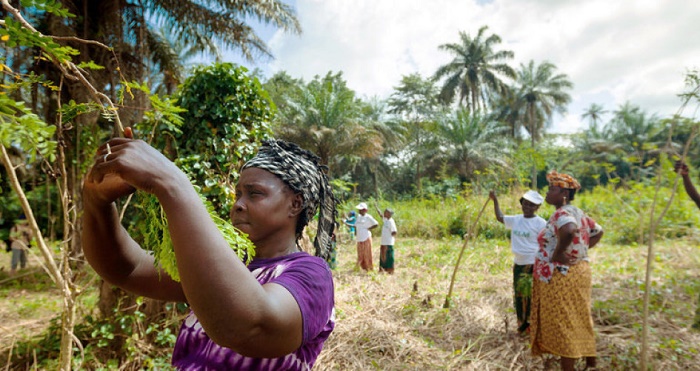Agriculture and food security featured prominently at the UN Climate Change Conference COP27 in Sharm el-Sheikh, Egypt in November 2022, with governments working on stepping up action to cut greenhouse gas emissions and adapt to climate change in the agriculture sector.

This included agreement on a new four-year plan on Agriculture and Food Security and a new initiative aimed at scaling up finance to transform agriculture by 2030.
The world’s agriculture sector is increasingly vulnerable to climate change. The evidence on the impacts of climate change on food security is growing worldwide and more prominently in developing countries: rising temperatures, heat waves, droughts and floods, changes in rainfall patterns and extreme events affect agriculture more than any other sector.
Against this background, a new initiative – Food and Agriculture for Sustainable Transformation (FAST) – was launched on November 12 by more than 20 agriculture ministers and the Egyptian COP27 presidency.
FAST is a multi-stakeholder programme that aims not only to step up finance to transform agriculture, but also to contribute to adaptation efforts and pursue the Paris Agreement’s 1.5°C global warming limit while supporting economic and food security.
Several high-level representatives from a wide range of stakeholders announced support for the FAST initiative, including foundations, banks, the private sector and NGOs.
UN Climate Change Executive Secretary, Simon Stiell, addressed the meeting, saying: “Without lowering emissions coming from the entire food chain, we cannot keep 1.5°C alive. Equally, unless we address the ongoing climate crisis, our food system will be at risk.”
Addressing climate change and agriculture is a major priority for developing countries, where livelihoods are at particular risk from climate impacts.
Dr. Agnes Kalibata, president of the Alliance for a Green Revolution in Africa, said: “Practical lessons that can be scaled exist: from sustainable intensification of food systems, to regenerative agriculture, to agroecology and related agroforestry. Such solutions offer us an opportunity to build food, social-economic and ecological resilience to the negative effects of climate change. These practices work towards empowering communities against hunger and poverty, and ensure inclusion of marginalized communities and people.”
New plan on Agriculture and Food Security builds on existing work
The four-year Sharm el-Sheikh joint work on implementation of climate action on agriculture and food security builds upon the Koronivia Joint Work on Agriculture, which focuses on solutions for specific agricultural topic areas over a five-year roadmap, including assessing adaptation, improving soil health and improving livestock management systems.
The new Sharm el-Sheikh joint work will promote holistic approaches to addressing climate impacts both on and from agriculture and food security and will be a key coordination hub for discussions and political decisions on these matters.
Specific activities relate to promoting synergies between actors within and outside the UN Climate Change process, and providing support and technical advice to countries and financing entities on climate action on agriculture and food security. Countries also decided to establish an online portal for sharing information on projects, initiatives and policies for increasing opportunities to implement these actions.
